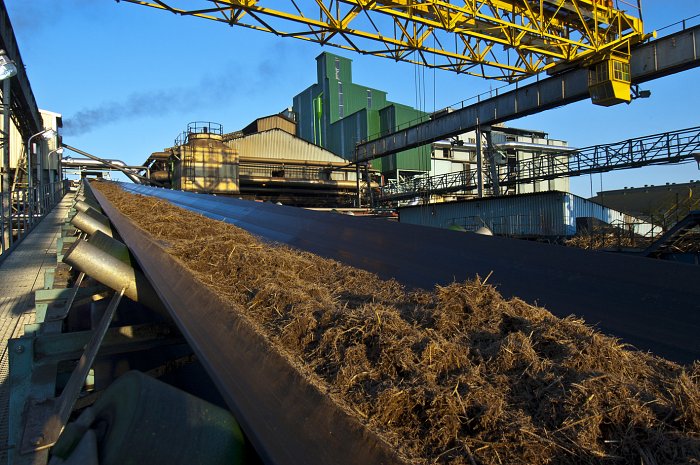11 November 2016
Supplying renewable energy to Swaziland’s National Grid
Objective
Across southern Africa, Illovo sugar mills are increasingly able to generate energy using co-products of the sugar manufacturing process.
The business wanted to find ways to export this energy and in doing so create significant environmental and economic benefits.
What we did
Bagasse, a dry, fibrous co-product from sugar cane, provides a substantial renewable energy source for combined heat and power (CHP), replacing fossil fuel sources such as coal and reducing greenhouse gas emissions.
In addition to bagasse, some of Illovo’s operations in Ubombo in Swaziland, Nchalo in Malawi and Noodsberg in South Africa, are able to supplement their CHP capacity by using additional green cane biomass and wood or woodchips as boiler feedstock.
It was in 2011 that Ubombo became the first company in Swaziland to be issued with an Independent Power Producer (IPP) licence.
As part of the £104.5 million project to expand sugar milling capacity from 400 to 500 tonnes of cane per hour, Ubombo invested in a 25mW co-generation plant. In 2013, the company was issued with an IPP Generation Licence, which enabled electrical cogeneration to become a longer-term contributor to Illovo’s downstream business.
Results
Ubombo has proved that it is a reliable supplier of electricity. During 2015/16 the Ubombo mill in Swaziland, with its integrated cogeneration facility, exported 60,301MWh to the National Grid. The sale of this clean renewable energy has directly enabled the Swaziland Electricity Company (SEC) to reduce its Scope 1 emissions and consequently, its customers’ Scope 2 emissions, avoiding 41,186 *tCO2e (2014/15: 38,025 tCO2e, and 2013/14: 36,218 tCO2e).
Power exported to the Swaziland Electricity Company (SEC), the sole supplier of electricity to the country, has been consistently above the Power Purchase Agreement (PPA) obligations since commissioning. The 55.5GWh exported to SEC in 2015 was a record and exceeded the contracted PPA obligation of 52GWh for the period. The total power export of 94.2GWh from the CHP plant, which includes exports to the agricultural operations and other ‘in-house’ users, was also a record and exceeded the original budget by 4GWh.
In the 2015/16 season, operations across Illovo utilised over 130,000 tonnes of biomass and wood/woodchips as renewable fuel sources to produce over 540,709 MWh (2014/15: 567,462MWh) of heat and energy in their dual-fired boilers. Illovo is continuing to assess opportunities to increase the CHP capabilities of all its operations.
*tonnes of CO2 emissions
















